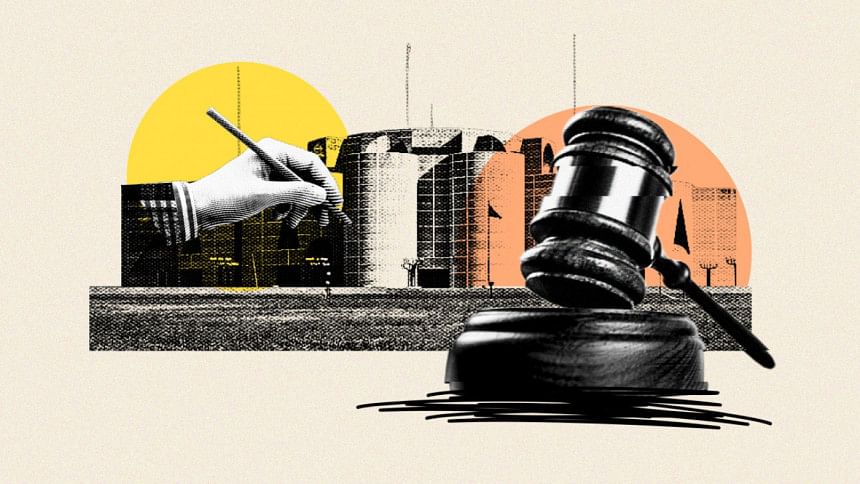Lack of reform priorities led to political chaos

The interim government has failed to set their reform priorities, which led to chaos among the political parties and damaged the national consensus, speakers told an event yesterday.
They said if the government were to prioritise reducing discrimination in the labour, agriculture and health sectors, they would be able to connect all the political groups in the process.
Labour sector is one of the most discriminatory sectors in the country where the government has opportunities to reduce discrimination and give labourers a better work environment, they added.
The remarks came at a special lecture on the recommendations made by the Labour Reform Commission, titled "Discriminatory Society: Debate and Ways", at Dhaka University yesterday.
The speaker of the lecture, Taslima Akhter, also one of the members of the Labour Reform Commission, said around 85 percent of the country's total 8 crore labourers are still out of any legal framework.
"Household workers, agricultural labourers, and those involved in fisheries are still not acknowledged in the labour laws in the country. Their acknowledgement should be the first priority, and then there should be some activities gradually to ensure their wages, working hours and their rights to be involved in organisations," she said.
Mentioning that many government institutions for training or labourers' welfare are now abandoned, Taslima called for those institutes to be active and alongside establishing a permanent labour commission to solve their complaints.
There should be a national minimum wage commission to determine minimum wage for all sectors, she also said, adding the labour activities should be incorporated in the students' curriculum to make them feel hardship in their life.
She also stressed for ensuring decent working environment and adequate wage for labourers.
She further called for dissolving provisions in the Labour Act that discourage engaging workers in their unions or rights organisations.
Writer and researcher Altaf Parvez termed the Labour Reform Commission's report as a practical one.
"Around 122 labourers have died during the July uprising. They engaged in the movement in hope that their discrimination may end in future. But the labour reforms were not the government's top priorities," he said.
"We didn't move forward with any reform in the last eight months, which is now creating chaos on the issue of holding national elections. It was supposed to happen. If the government set priorities on labour rights, and other issues which need major reforms, they would get all the political parties on their side," he said.
If the financial gap between the rich and poor is not reduced, no reforms will be sustainable, he added.

 For all latest news, follow The Daily Star's Google News channel.
For all latest news, follow The Daily Star's Google News channel. 



Comments